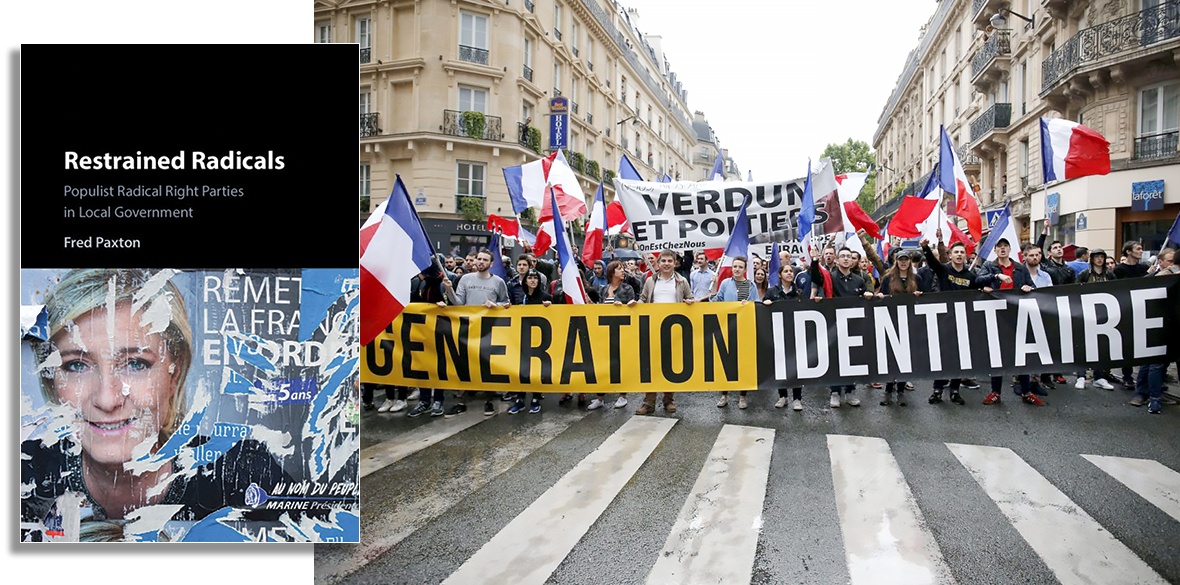This is the last article you can read this month
You can read more article this month
You can read more articles this month
Sorry your limit is up for this month
Reset on:
Please help support the Morning Star by subscribing here
Restrained Radicals: Populist Radical Right Parties in Local Government
Fred Paxton, Cambridge University Press, £85
NO SINGLE issue is arguably more pressing for “liberal democracy” today than the philosophical conundrum described by Karl Popper as the “paradox of tolerance.”
This is the self-contradictory reflex in a plural society to protect the norms of “tolerance” that define it by retaining a right to be “intolerant” of ideas or behaviour that threaten it.
Other philosophers have grappled with this challenge, which has risen to the fore in recent years as far-right political parties have marched into the mainstream across Europe.
Just recently, the French far-right leader Marine Le Pen demonstrated her instinctive knack for “dediabolisation” by supporting Israel as part of a lengthy campaign to prepare her National Rally (RN) for a presidential run in 2027.
Therefore, a key question that must be answered in order to wrestle with the consequences of far-right extremism, and to address the paradox of tolerance one way or another, is: to what extent do these radicals, in fact, threaten democracy?
The evidence might suggest less than we think, according to Fred Paxton’s detailed research on populist radical right (PRR) parties that have gained a foothold in local government — considered the first rung on the ladder in their maniacal fantasies.
Paxton compares the performance of these parties in Austria, France, Italy and Switzerland to paint a picture of considerable diversity in the degree to which, once in power, radicals affect local politics, and the factors at play that restrain their fanaticism.
The author goes beyond nativist priorities such as immigration to consider a range of ideological concerns among PRR parties, revealing a “performative” role in policy-making.
As they transition from fringe to mainstream, the far right often use policy to parade their identity and ideology, and to appear tough by singling out social groups they disapprove of, so-called “vice signalling.”
While nativist and authoritarian ideas play different performative roles, argues Paxton, drawing group boundaries and heightening a sense of insecurity, if populism is defined as an institutional effort to undermine representative democracy, then it is barely evident.
Instead, populism offers a “discursive toolkit” to help these parties, once in power, to counter the inevitable risk of deradicalisation as they try to shed a racist image and gain credibility, enabling the “one foot in, one foot out” strategy associated with Italy’s Northern League, by which tough talk is often accompanied by legislative moderation.
Paxton writes: “In this way, populism is far from incompatible with power, which was the dominant conception in the past… but in fact, can contribute to building support in government as well as in opposition.”
He cites the case of the RN in the commune of Henin-Beaumont, northern France, which is known for swinging from socialist to far-right domination, and which de-emphasised ethnic themes to portray itself as the true representative of “the people” and opponents as an out-of-touch elite.
The issue of migration during the 2015 European migrant crisis was clearly of relevance in the Pas-de-Calais department and a high priority of the RN nationally, but was largely avoided by the local RN mayor.
Nonetheless, the picture we are left with is a complex mosaic in which a host of institutional and political factors act to moderate extreme right-wing behaviour, not the least of which is pressure to behave from leaders with an eye on national power such as Le Pen.
Incumbency is a challenge to all political parties, but more so for anti-Establishment groups whose very identity is premised on criticism of existing institutions and practices.
While there are many strategies they can pursue once in government, they will always face familiar pressures: to seek accommodation, compromise and deliver on promises. The degree of power-sharing with other parties is critically important in reining in their radical pretensions.
Other restraining factors include the electoral machinery. Majoritarian systems in France and Italy offer different opportunities for right-wing mayors to the proportional processes in Austria and Switzerland that imply cross-party alliances, and crucially, how much control is exerted over local cadres by central party executives.
A essential variable in the extent to which restraints can curb extremism is the perception of what local government is for. In Switzerland, for example, town hall bureaucrats exercise a formative role in policy-making, nurturing perceptions of local government as an apolitical arena.
And simply participating in local administration itself can foster “mainstreaming,” a strategy to act more like established parties that responds to the obvious fact that many people do not perceive the radical right as “normal,” hence limiting its share of the vote.
So if Restrained Radicals suggests for now that we might not need to reach for Popper’s “paradox of tolerance” in relation to local politics, it might at least focus our minds on freedom of speech, which notion is probably most relevant in the current climate.











